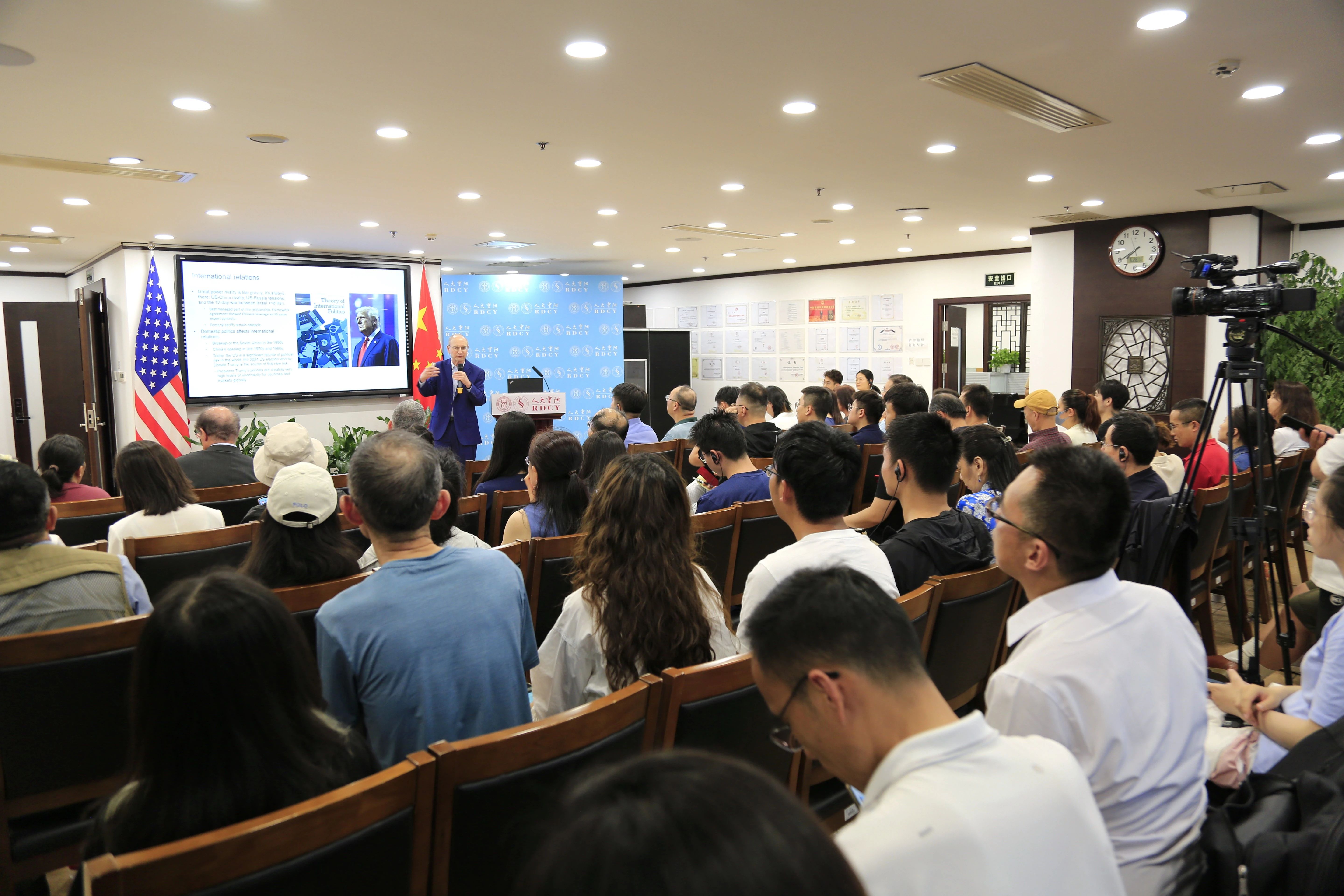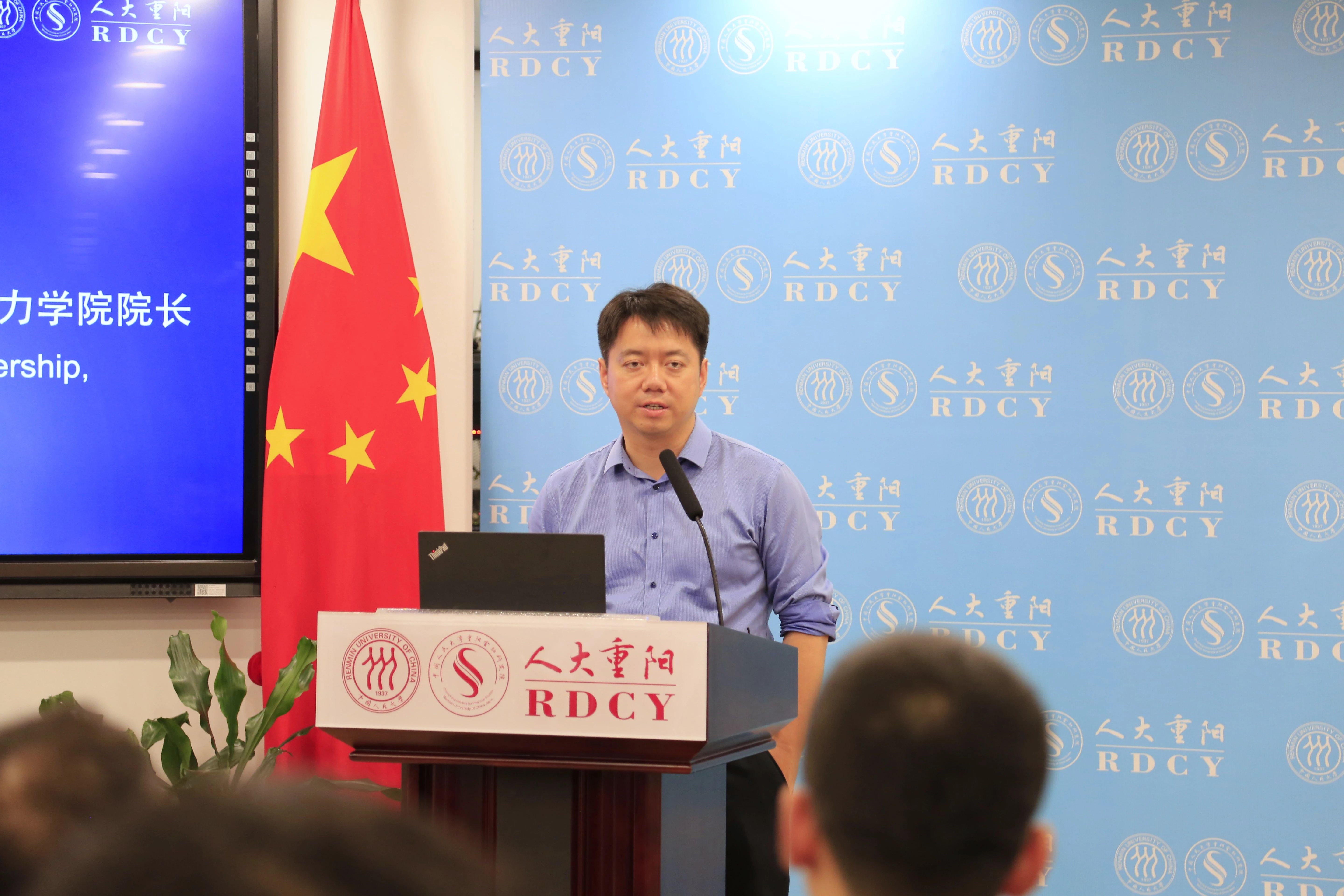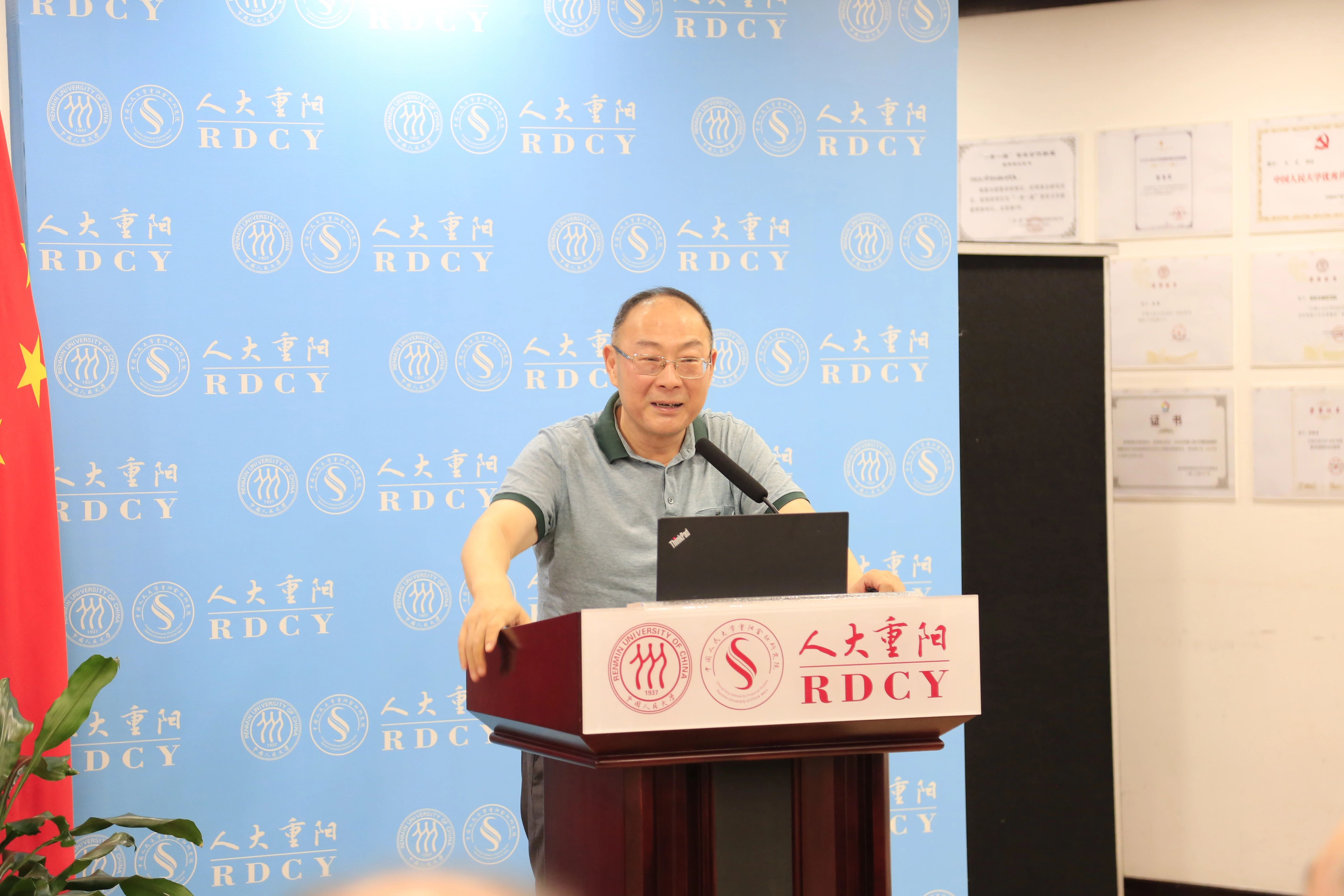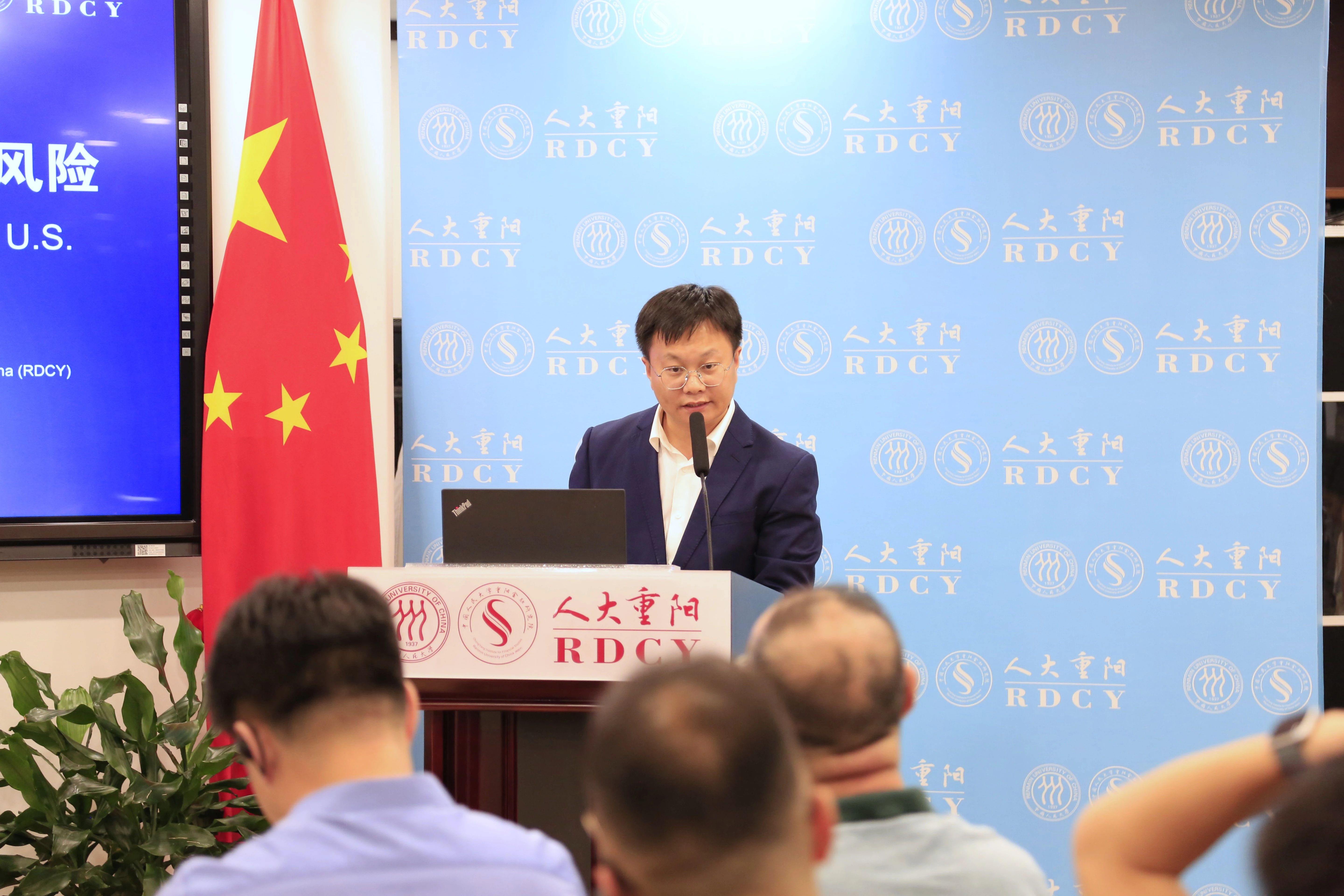Picture
Your Present Location: HOME> PictureMr. Cliff Kupchan, Chairman of Eurasia Group, visited RDCY
Mr. Cliff Kupchan, Chairman of Eurasia Group, visited RDCY

On June 28, 2025, renowned U.S. scholar and Chairman of Eurasia Group, Mr. Cliff Kupchan, visited the Chongyang Institute for Financial Studies at Renmin University of China (RDCY) and delivered a keynote speech at the fourth session of the “Global Masters Series” of the RDCY Forum for Area Studies, titled “ Geopolitical Transformation: Great Power Rivalry, U.S. Domestic Politics, and Global Risk. ” This marked his third lecture at RDCY, following his previous talks in June 2023 and July 2024. The event received widespread media coverage, with over ten outlets including Beijing Daily and Phoenix TV reporting on the forum.

Dean of RDCY and Dean of the School of Global Leadership at Renmin University of China, Wang Wen, warmly welcomed Mr. Kupchan on his third visit. He remarked that as a new type of Chinese think tank, RDCY has always embraced an open and inclusive attitude. He emphasized that although many differences may still exist in views between China and the United States at present, as long as both sides are willing to sit down for dialogue, it will help promote the healthy recovery of China-U.S. relations.
In his speech, Mr. Kupchan stated that the world is currently experiencing what he described as an “unprecedented period of international uncertainty.” The global system is undergoing turbulence driven by multiple factors. He noted that major power competition is like “gravity”. It exists objectively whether people like it or not, and the China-U.S. rivalry has become a structural norm within the international system. He also pointed out that tensions between the U.S. and Russia, as well as regional conflicts such as the Israel-Iran confrontation, are compounding this instability.
He observed that the Trump administration is steering the United States toward a new tariff-based system. Currently, the average effective tariff rate on all U.S. imports stands at 15% — a level last seen in the 1930s. He predicted that the U.S. will likely maintain a tariff level on all imports between 10% and 15% regardless of IEEPA’s status, and this level of tariffs will form a new structure in the international trade system. This reflects the rise of domestic political polarization and protectionist forces in the U.S., and even future changes in administration are unlikely to reverse this structural trend. Coupled with immigration restrictions, the tariff policy is expected to negatively impact U.S. economic growth and inflation, with ripple effects across global markets.
Mr. Kupchan concluded by stating that the global order is heading toward a “G-Zero World,” where no single power or group of powers can drive a global agenda and maintain international order. He argued that the international system is becoming increasingly fragmented and regionally divided, which will further exacerbate the endemic leadership deficit, with geopolitical risks persisting over the long term. He warned that the world is entering its most unstable period since the 1930s.
Following his remarks, Professor Jin Canrong from the School of International Studies at Renmin University of China and Dr. Dun Zhigang, Research Fellow at the RDCY, joined the panel discussion.

Professor Jin Canrong pointed out in his remarks that changes in the global political landscape are having a profound impact on foreign policy. He noted that if Germany were to normalize itself militarily and take on stronger leadership within the European Union, it could bring significant geopolitical changes. Second, Russia remains an important strategic player with abundant natural resources and a high degree of self-sufficiency. Lastly, India has demonstrated ambitious development momentum under Prime Minister Modi’s leadership. It has already surpassed the United Kingdom in GDP and is very likely to surpass Japan, becoming a new world-class economy. He emphasized that while focusing on China-U.S. competition, we should not overlook the roles of Germany, Russia, and India in shaping the international landscape.

Dr. Dun Zhigang noted that the division and instability within U.S. domestic politics have become a significant source of global security risks. He stated that the U.S. foreign policy is increasingly driven by short-term domestic political cycles. These short-term cycles weaken its commitment to allies and the international system, thereby eroding the foundations of multilateral cooperation. Moreover, rising tensions among major powers, combined with the external spillover effects of U.S. politics, are amplifying systemic global risks. Dr. Dun emphasized that in response to these challenges, major powers must rebuild their crisis management mechanisms and establish functional cooperation in areas such as artificial intelligence, public health, and the security of critical supply chains to gradually restore mutual trust.
During the Q&A session, participants engaged in in-depth exchanges with Mr. Kupchan on topics including China-U.S. technological competition, the role of the “Global South,” transatlantic relations, the outlook for the Russian economy, and the influence of U.S. think tanks.
Key Words: Wang Wen, Cliff Kupchan























































































 京公网安备 11010802037854号
京公网安备 11010802037854号





